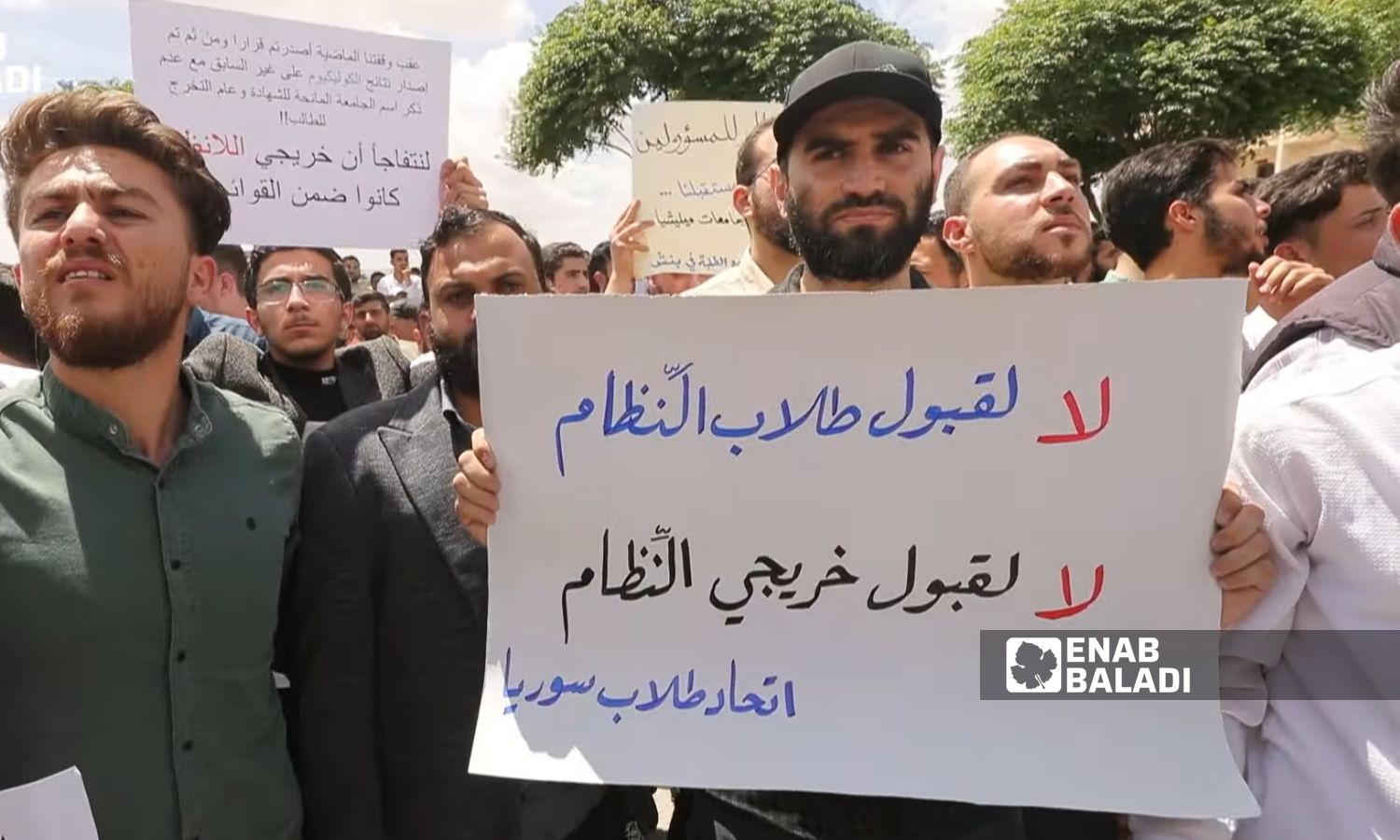The Salvation Government, operating in Idlib City, announced on Sunday, May 12, its decision to withdraw the privileges of practicing professions and financial assistance granted for certificates obtained from Syrian universities outside the northern Syrian regions. This decision follows protests and a student strike in Idlib.
Recently established by the Salvation Authority, a committee has decided to revoke the privileges of practicing professions and financial aid associated with certificates issued after June 30, 2019. This withdrawal will be effective from May 12 until the conclusion of the current academic year, as stated by the committee’s chairman, Fawaz Hilal.
This decision is a direct outcome of discussions held during the committee’s meeting on May 12, which involved the head of the General Shura Council, the Minister of Higher Education, the President of Idlib University, and representatives from both university students and private institutions.
What’s the committee?
On May 6th, the Salvation government announced the establishment of a committee comprised of 17 members, predominantly holding positions within the government and regional universities. The committee also includes engineers, lawyers, and representatives from the Student Union in Idlib. This decision was prompted by ongoing student protests in Idlib.
The committee has been tasked with two main objectives. Firstly, they are to examine certificates issued after December 31, 2016, to individuals from areas controlled by the Syrian regime who have relocated to northern Syrian regions. This examination will include assessing the conditions and criteria for the acceptance of these certificates.
Secondly, the committee is mandated to evaluate certificates obtained from regions under the control of the interim government in rural Aleppo. This evaluation will involve extending benefits to certificate holders equivalent to those of graduates from universities accredited by the Ministry of Higher Education in the Salvation government. These benefits may include employment opportunities, participation in postgraduate programs, and eligibility for professional licensure.
What is the story behind the certificates?
Two weeks prior, students in Idlib voiced their frustration through protests and strikes, expressing strong opposition to the appointment of university graduates hailing from regime-controlled territories within Idlib.
The demonstrators demanded an immediate halt to all processes associated with certificates from universities in regime-controlled zones, including equivalency assessments and professional licensing.
These students condemned the failure to implement the “rescue” decision, which aimed to restrict the employment of graduates from Syrian universities and institutes outside the regime’s sphere of influence post-2016, labelling it as nothing more than empty promises.
Several interviewed students, as reported by Enab Baladi, highlighted how the increasing acceptance of certificates from regime-controlled areas was exacerbating the competition for job opportunities in northern Syria, prompting calls for an educational strike until their demands were met.
On September 5, 2022, the Salvation government decreed to prohibit graduates from Syrian institutions outside its jurisdiction post-2016 from working in ministries and affiliated entities, with certain stipulations.
The Salvation Authority emphasized prioritizing the employment of graduates from Syrian universities within the liberated territories, notably Idlib and its environs.
This article was translated and edited by The Syrian Observer. The Syrian Observer has not verified the content of this story. Responsibility for the information and views set out in this article lies entirely with the author.


